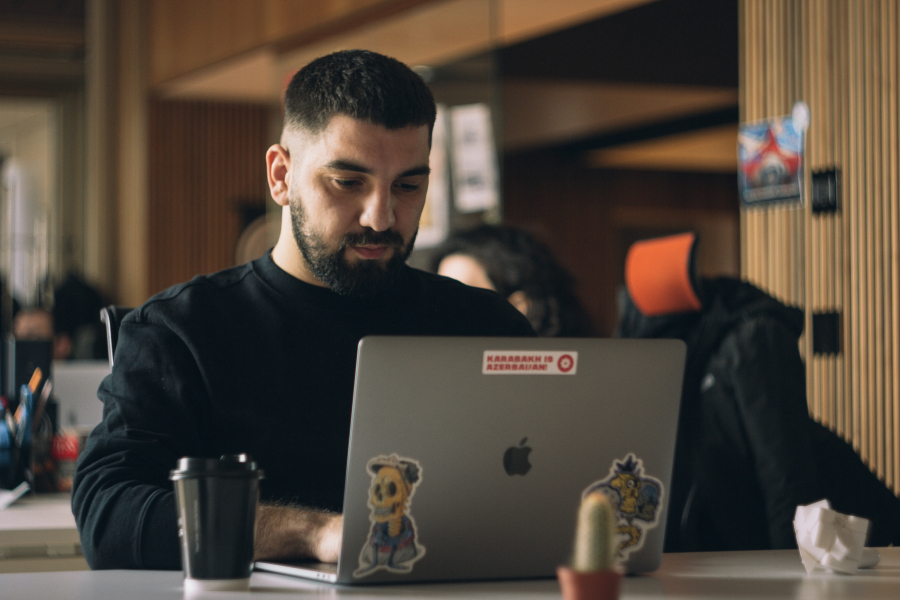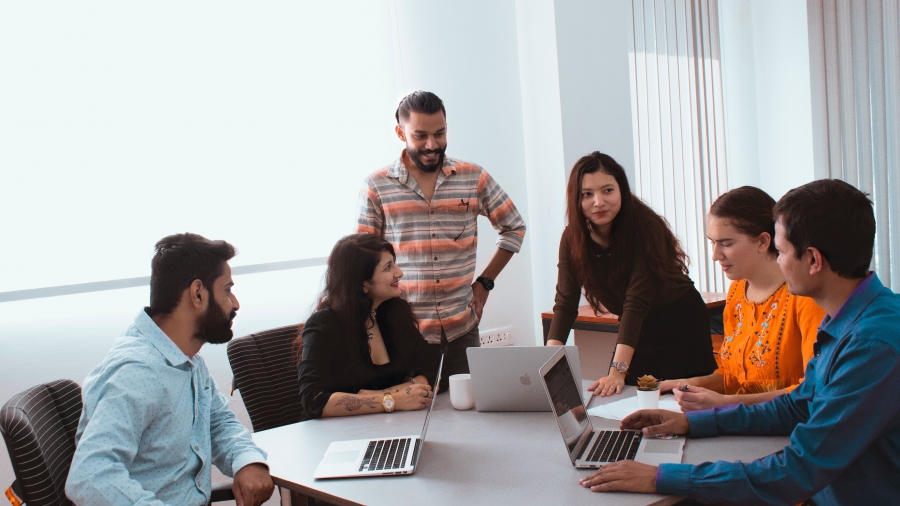- Afghanistan
- Åland Islands
- Algeria
- American Samoa
- Andorra
- Remote
- Argentina
- Aruba
- Australia
- Austria
- Azerbaijan
- Bahamas
- Bahrain
- Bangladesh
- Barbados
- Belarus
- Belgium
- Belize
- Benin
- Bermuda
- Bhutan
- Bolivia
- Bonaire, Sint Eustatius, and Saba
- Bosnia and Herzegovina
- Botswana
- Bouvet Island
- Brazil
- British Indian Ocean Territory
- British Virgin Islands
- Brunei
- Bulgaria
- Burkina Faso
- Burundi
- Cambodia
- Cameroon
- Canada
- Cape Verde
- Cayman Islands
- Central African Republic
- Chad
- Chile
- China
- Christmas Island
- Cocos [Keeling] Islands
- Colombia
- Comoros
- Cook Islands
- Costa Rica
- Croatia
- Cuba
- Curaçao
- Cyprus
- Czech Republic
- Congo - Kinshasa
- Denmark
- Djibouti
- Dominica
- Dominican Republic
- Timor-Leste
- Ecuador
- Egypt
- El Salvador
- Equatorial Guinea
- Eritrea
- Estonia
- Ethiopia
- Falkland Islands
- Faroe Islands
- Fiji
- Finland
- France
- French Guiana
- French Polynesia
- French Southern Territories
- Gabon
- Gambia
- Georgia
- Germany
- Ghana
- Gibraltar
- Greece
- Greenland
- Grenada
- Guadeloupe
- Guam
- Guatemala
- Guernsey
- Guinea
- Guinea-Bissau
- Guyana
- Haiti
- Heard Island and McDonald Islands
- Honduras
- Hong Kong SAR China
- Hungary
- Iceland
- India
- Indonesia
- Iran
- Iraq
- Ireland
- Isle of Man
- Israel
- Italy
- Côte d’Ivoire
- Jamaica
- Japan
- Jersey
- Jordan
- Kazakhstan
- Kenya
- Kiribati
- Kosovo
- Kuwait
- Kyrgyzstan
- Laos
- Latvia
- Lebanon
- Lesotho
- Liberia
- Libya
- Liechtenstein
- Lithuania
- Luxembourg
- Macau SAR China
- Macedonia
- Madagascar
- Malawi
- Malaysia
- Maldives
- Mali
- Malta
- Marshall Islands
- Martinique
- Mauritania
- Mauritius
- Mayotte
- Mexico
- Micronesia
- Moldova
- Monaco
- Mongolia
- Montenegro
- Montserrat
- Morocco
- Mozambique
- Myanmar [Burma]
- Namibia
- Nauru
- Nepal
- Netherlands
- Netherlands Antilles
- New Caledonia
- New Zealand
- Nicaragua
- Niger
- Nigeria
- Niue
- Norfolk Island
- North Korea
- Northern Mariana Islands
- Norway
- Oman
- Pakistan
- Palau
- Palestinian Territories
- Panama
- Papua New Guinea
- Paraguay
- Peru
- Philippines
- Pitcairn Islands
- Poland
- Portugal
- Puerto Rico
- Qatar
- Congo - Brazzaville
- Réunion
- Romania
- Russia
- Rwanda
- Saint Barthélemy
- Saint Helena
- Saint Kitts and Nevis
- Saint Lucia
- Saint Martin
- Saint Pierre and Miquelon
- Saint Vincent and the Grenadines
- Samoa
- San Marino
- São Tomé and Príncipe
- Saudi Arabia
- Senegal
- Serbia
- Serbia and Montenegro
- Seychelles
- Sierra Leone
- Singapore
- Sint Maarten
- Slovakia
- Slovenia
- Solomon Islands
- Somalia
- South Africa
- South Georgia and the South Sandwich Islands
- South Korea
- South Sudan
- Spain
- Sri Lanka
- Sudan
- Suriname
- Svalbard and Jan Mayen
- Swaziland
- Sweden
- Switzerland
- Syria
- Taiwan
- Tajikistan
- Tanzania
- Thailand
- Togo
- Tokelau
- Tonga
- Trinidad and Tobago
- Tunisia
- Turkey
- Turkmenistan
- Turks and Caicos Islands
- Tuvalu
- U.S. Virgin Islands
- Uganda
- Ukraine
- United Arab Emirates
- United Kingdom
- United States
- U.S. Minor Outlying Islands
- Uruguay
- Uzbekistan
- Vanuatu
- Vatican City
- Venezuela
- Vietnam
- Wallis and Futuna
- Western Sahara
- Yemen
- Zambia
- Zimbabwe
Future-Proof Yourself: Remote Side Hustles for Students

Future-Proof Yourself: Remote Side Hustles for Students
In the ever-evolving landscape of work, where artificial intelligence and automation are gradually reshaping traditional job roles, students find themselves standing at the crossroads of uncertainty and opportunity. The conventional pathway from education to a stable career no longer guarantees the security it once did. In this era of technological disruption and economic unpredictability, the need for adaptability and continuous learning has become paramount for every aspiring professional. It is within this context that the concept of remote side hustle gigs emerges as a compelling solution for students seeking to not only earn money but also gain invaluable experience.
Remote Side Hustles Defined
Remote side hustle gigs, often interchangeably referred to as freelancing or gig work, represent a transformative trend in the contemporary world of employment. These opportunities empower students to leverage their skills, interests, and talents to undertake short-term, flexible work arrangements, often conducted remotely. From graphic design and content writing to digital marketing and software development, the spectrum of remote side hustles is expansive, offering a wide array of possibilities to explore.
Relevance in a Shifting Job Market
The traditional job market, characterized by long-term employment contracts and well-defined career paths, has undergone a profound metamorphosis. The advent of AI and automation has disrupted the status quo, rendering some jobs obsolete while creating new opportunities in previously uncharted territories. This volatile landscape presents students with a paradoxical challenge: the world is rife with uncertainty, yet brimming with untapped potential. To navigate this uncertainty successfully, students must embrace adaptability and continuous learning.
As the digital age progresses, skills that were once considered lifelong assets can become obsolete in a matter of years. Routine tasks are being automated, and industries are undergoing rapid transformations. The job you prepare for today may not exist in the same form tomorrow. Therefore, the ability to adapt to new opportunities and skill sets is not merely an asset but a prerequisite for thriving in this era of flux.
Thesis Statement: The Imperative of Adaptability and Continuous Learning
In this dynamic environment, the concept of remote side hustle gigs takes on newfound significance. It becomes a dynamic platform through which students can future-proof themselves against the uncertainties of the job market. It is not just a means of generating income but a strategic investment in one's adaptability and capacity for continuous learning. The thesis of this article posits that, in light of AI's pervasive influence and the ever-shifting job market, remote side hustle gigs offer students a unique opportunity to not only survive but thrive. They enable students to develop the essential skills and resilience needed to reinvent themselves continuously, aligning perfectly with Yuval Noah Harari's call for adaptability and lifelong learning in the 21st century.
As we delve deeper into this exploration, we will uncover the myriad benefits of remote side hustle gigs, understand their alignment with Harari's ideas, and equip students with the knowledge and strategies needed to embark on this journey of self-reinvention and sustainable success. The path to future-proofing oneself begins with embracing the transformative power of remote side hustle gigs.
The Changing Landscape of Work
In this section, we will delve into the profound impact of AI and technological advancements on traditional job roles, highlighting the uncertainty that students face in terms of future job opportunities. We will also introduce Yuval Noah Harari's ideas from "21 Lessons for the 21st Century" regarding adaptability and continuous learning.
The Impact of AI and Technological Advancements
The advent of artificial intelligence and rapid technological advancements has ushered in a transformative era in the world of work. AI, machine learning, and automation have the potential to significantly alter or even eliminate certain traditional job roles. Tasks that were once performed exclusively by humans are now being executed more efficiently and accurately by machines. For example, in industries such as manufacturing and customer service, robots and AI-driven chatbots have taken on roles that were previously held by human workers.
Moreover, AI has introduced a new dimension to job markets by creating opportunities in fields such as data analysis, machine learning, and AI development. However, these opportunities require specialized skills and competencies that many students are not traditionally equipped with. Consequently, students are confronted with the dual challenge of adapting to the potential obsolescence of their chosen career paths while simultaneously upskilling to stay relevant in the emerging job landscape.
Uncertainty in Future Job Opportunities
The disruptive impact of AI and technological advancements has given rise to a palpable sense of uncertainty among students. The traditional notion of a linear career trajectory, where education leads to a specific job and a secure future, is no longer a guarantee. Students may find themselves graduating into industries that are undergoing rapid transformations, or they may encounter a job market where the roles they trained for no longer exist.
As a result, the age-old advice of selecting a career and sticking with it for life has become increasingly outdated. The prevailing uncertainty has made it imperative for students to embrace adaptability and continuous learning as survival skills in the modern job market.
Harari's Insights on Adaptability and Continuous Learning
Yuval Noah Harari, in his book "21 Lessons for the 21st Century," underlines the significance of adaptability and continuous learning in the face of such technological and economic shifts. He argues that the most critical skills for the 21st century are not specific technical skills but rather the ability to adapt to change and to acquire new skills when necessary.
Harari posits that the traditional model of education, which focused on transmitting a fixed body of knowledge, is no longer sufficient. Instead, he suggests that education should foster cognitive flexibility, curiosity, and the capacity to reinvent oneself. This resonates deeply with the challenges students face in an era of AI and uncertainty about the job market. Harari's insights serve as a guiding beacon, highlighting the need for students to be agile learners and adaptable professionals.
The Rise of Remote Side Hustles
In this section, we will explore the concept of remote side hustles, explaining what they are and why they have gained popularity among students. We will also discuss the various benefits of remote side hustles, including flexibility and skill development, while mentioning the potential income opportunities associated with these gigs.
Understanding Remote Side Hustles
Remote side hustle gigs, sometimes referred to as freelancing or gig work, represent a paradigm shift in the world of work. These opportunities enable individuals, including students, to leverage their skills and talents to undertake short-term, flexible work arrangements, often conducted remotely. Remote side hustles encompass a broad spectrum of activities, from creative endeavors like graphic design and content writing to technical roles such as web development and digital marketing.
Why Remote Side Hustles Have Become Popular Among Students
There are several compelling reasons behind the surge in popularity of remote side hustles among students:
Flexibility: Remote side hustles offer unparalleled flexibility. Students can work on projects at their own pace, fitting gigs around their academic schedules and other commitments.
Skill Development: Engaging in remote side hustles provides students with practical, hands-on experience in their chosen fields. This experiential learning can be more valuable than classroom instruction.
Portfolio Building: Side gigs allow students to build a diverse portfolio of work, which can be a powerful asset when seeking full-time employment.
Networking: Working remotely often involves collaborating with professionals from diverse backgrounds and locations. This fosters valuable networking opportunities that can open doors to future career prospects.
Benefits of Remote Side Hustles
Remote side hustles offer an array of benefits, making them an appealing option for students:
Skill Enhancement: Through side gigs, students can hone existing skills and acquire new ones, staying relevant in a changing job market.
Financial Independence: Side hustles enable students to earn money independently, reducing financial dependence on family or loans.
Resume Enhancement: The experiences gained from remote side hustles can bolster resumes and set students apart in a competitive job market.
Entrepreneurial Skills: Many side hustles require individuals to manage their own projects, fostering entrepreneurial skills and a sense of ownership.
Income Opportunities in Side Gigs
While remote side hustles often start as supplementary income sources, they have the potential to become substantial earners. Students can access income opportunities through:
Freelancing Platforms: Websites like Upwork, Freelancer, and Fiverr connect freelancers with clients seeking various services.
Content Creation: Blogging, vlogging, and podcasting can generate income through advertising, sponsorships, and affiliate marketing.
E-commerce: Students can start small online businesses, selling handmade products or dropshipping items.
Consulting: Offering expertise in fields like marketing, design, or IT can lead to high-paying consulting gigs.
In summary, remote side hustle gigs have emerged as a dynamic response to the changing job market influenced by AI and uncertainty. They provide students with the opportunity to adapt, learn continuously, and thrive in the face of uncertainty while offering flexibility, skill development, and income potential. This modern approach to work aligns seamlessly with Yuval Noah Harari's call for adaptability and lifelong learning in the 21st century.
Conclusion and Future Outlook
In an era where the only constant is change, where the job market morphs with the speed of technological innovation, and where artificial intelligence looms as both a disruptor and an enabler, the significance of adaptability and continuous learning cannot be overstated. As students stand at the threshold of their future careers, uncertainty and ambiguity reign. Yet, within this uncertainty lies a world of opportunity, a realm where remote side hustle gigs illuminate a path towards resilience and success.
Key Takeaways: Navigating Uncertainty with Remote Side Hustles
The journey we embarked upon in this exploration of "Future-Proof Yourself: Remote Side Hustles for Students" has revealed several critical takeaways:
Adapt or Perish: The traditional notion of a linear career trajectory is fading, replaced by a landscape of constant flux. AI and technological advancements have redefined the employment terrain. The ability to adapt to this ever-evolving environment is no longer an option; it is a necessity.
The Power of Side Gigs: Remote side hustle gigs offer students a practical way to develop adaptability and continuous learning. They are more than just income generators; they are vehicles for skill enhancement, portfolio building, and networking.
Harari's Wisdom: Yuval Noah Harari's wisdom from "21 Lessons for the 21st Century" underscores the imperative of adaptability and lifelong learning. His insights resonate deeply with the challenges students face in the modern job market, where agility and curiosity are prized.
Flexible Futures: Remote side hustles provide the flexibility that students need to navigate their academic pursuits while gaining valuable experience. They are a bridge between the classroom and the real world.
Income Potential: While remote side hustles often start as supplementary income sources, they hold the potential to become substantial earners. Through freelancing platforms, content creation, e-commerce, and consulting, students can monetize their skills and passions.
The Nexus of Adaptability and Remote Side Hustles
At the heart of this discussion lies the profound connection between adaptability, continuous learning, and remote side hustle gigs. Just as a river forges its course around obstacles, students can navigate the turbulent waters of the job market by engaging in side hustles. These gigs are not merely economic endeavors; they are crucibles of adaptability.
Remote side hustles foster the very qualities Harari extols: adaptability in the face of uncertainty, a willingness to embrace change, and the capacity to learn and relearn. They offer students an opportunity to practice what Harari preaches, enabling them to continually reinvent themselves in the ever-shifting tides of the 21st century.
Embrace Your Path to Future-Proofing
As we conclude this exploration, we urge students to embrace the concept of remote side hustles as a potent means of future-proofing themselves. It is not enough to passively watch the world change around you; you must be an active participant in your own evolution.
The future belongs to those who dare to adapt, who refuse to be defined by their degrees alone but by their resilience and their capacity to thrive in uncertain terrain. Remote side hustles are your ticket to this future. They are your canvas upon which you can paint a portrait of adaptability, a masterpiece of continuous learning, and a roadmap to success.
Seize the Moment
In this transformative age, the old adage holds true: fortune favors the bold. Therefore, we encourage you to proactively seek out remote side hustle opportunities that align with your skills, interests, and aspirations. Do not wait for change to come to you; usher in change through your willingness to explore, experiment, and excel.
Your journey into the world of remote side hustles may begin small, but its potential knows no bounds. It is a journey of adaptability, an odyssey of lifelong learning, and a testament to your resilience. It is your path to future-proofing yourself in the face of AI, uncertainty, and the ever-changing job market.
As you embrace this path, remember that the future belongs to those who are not just willing to learn but to unlearn and relearn. It belongs to those who, like the river, carve new channels when the old ones no longer serve. The future belongs to you, the adaptable, the lifelong learners, the masters of change. Remote side hustle gigs are your vessel; set sail and shape your destiny.

 by Gigster
by Gigster

